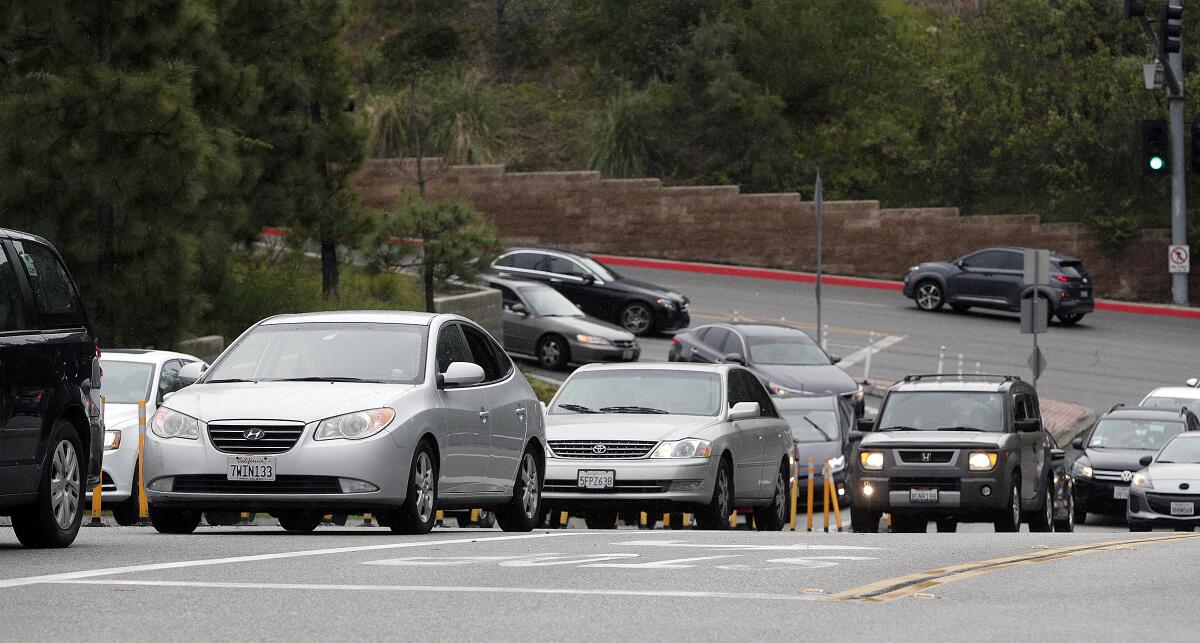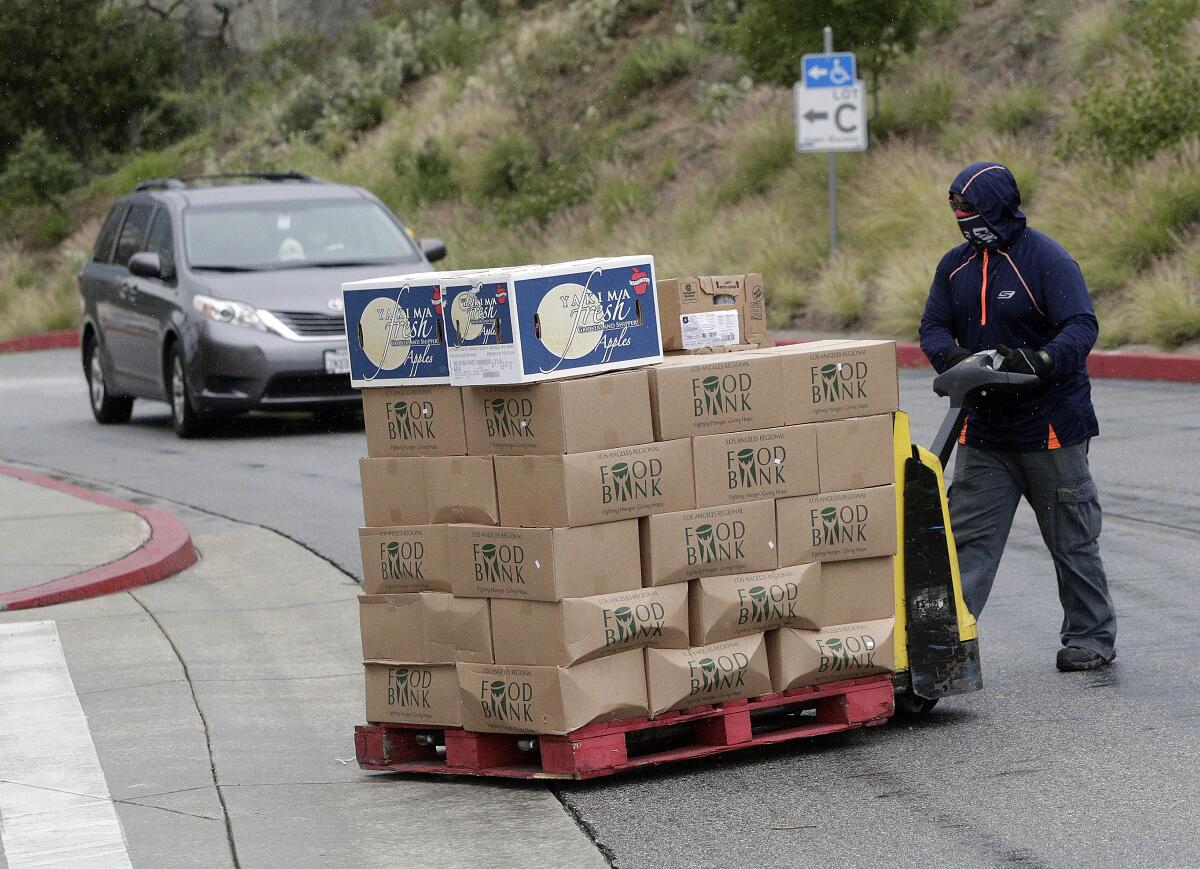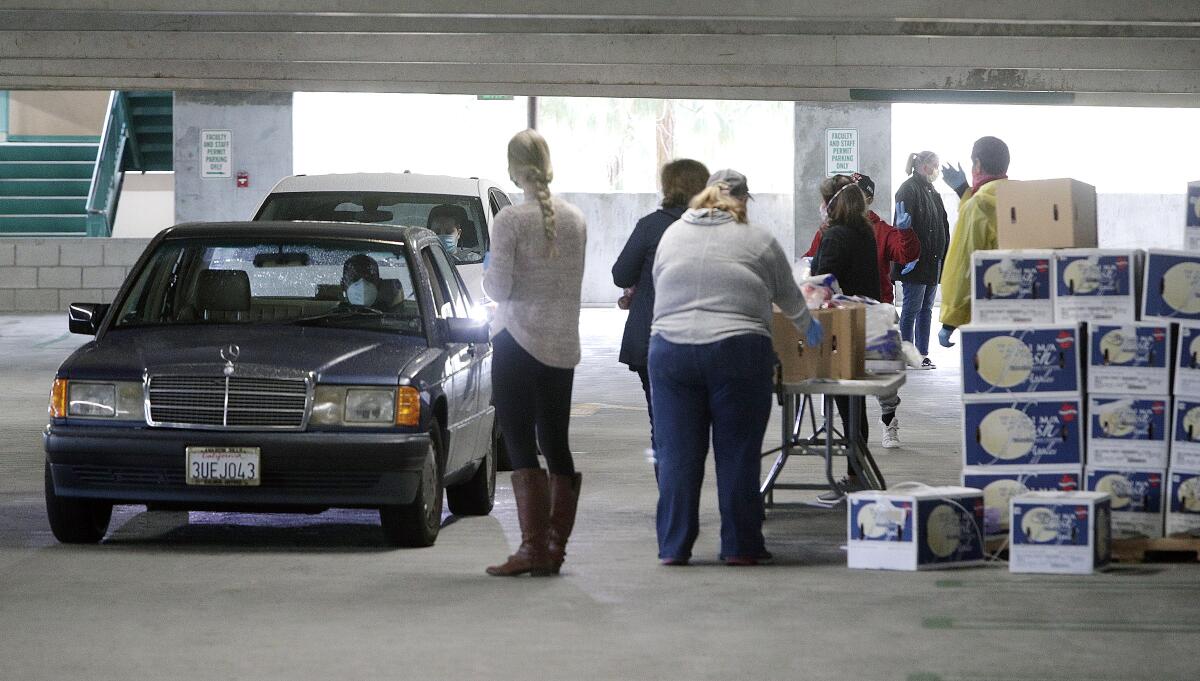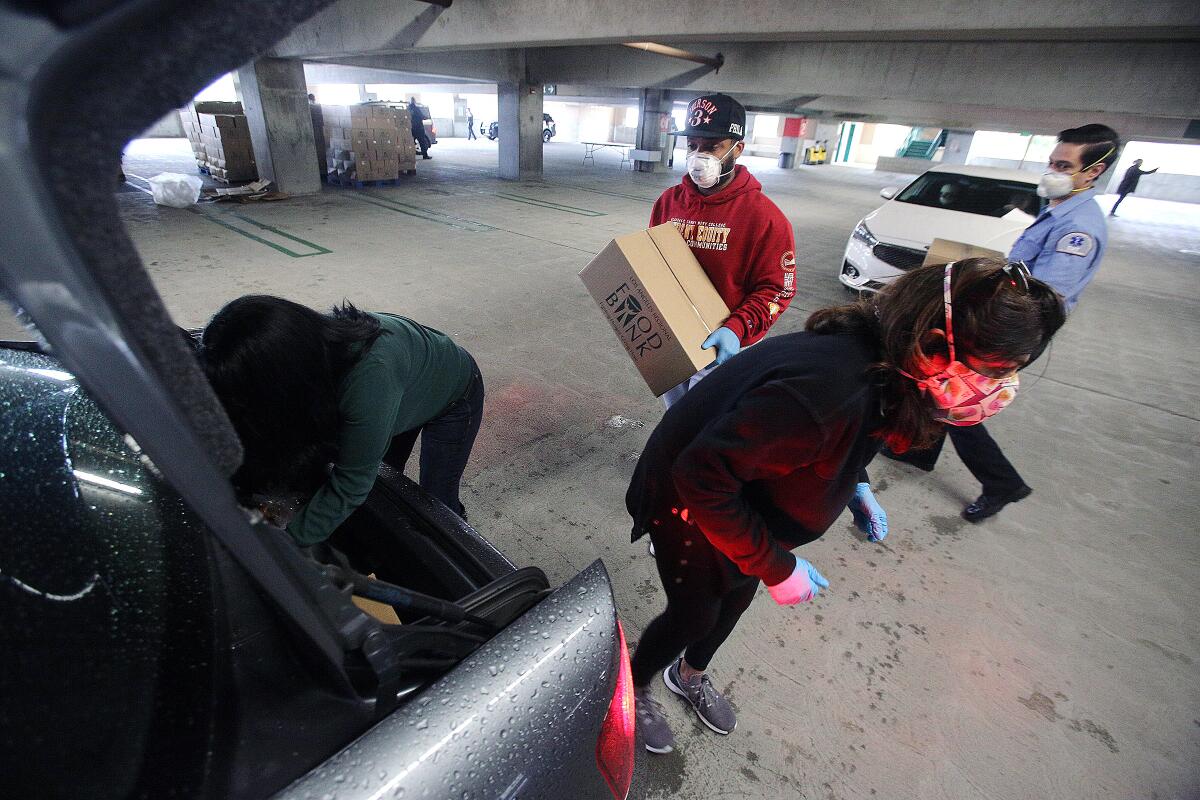Glendale Community College’s mobile food pantry meets a rising wave of need during pandemic

The coronavirus outbreak pushed a problem that existed in various communities beforehand to the surface — namely access to food.
In 2016, Glendale Community College took action to solve the needs of hungry students through its Food for Thought Pantry at the school’s Verdugo campus, followed by a second pantry at the Garfield campus a year later.
The food service, along with the college’s two campuses, shut down beginning March 16 as a precautionary measure to slow the spread of the coronavirus.
Although it wasn’t safe to work out of the pantries, school officials worked to organize a mobile food pantry open to everyone, not just students.
The community college’s student affairs department partnered with the GCC charitable foundation and the Los Angeles Regional Food Bank.
The Los Angeles Regional Food Bank works with five community colleges through the Mobile Food Pantry program and has worked with the local college for six months.
According to David May, the food bank’s spokesperson, it collects food from a variety of sources — grocers, farmers, growers, wholesalers and distributors.
The food is stored and boxed at the food bank’s warehouse. Then, items are loaded onto a truck, which drives to various locations in Los Angeles County.
On Tuesday, nearly 1,000 vehicles lined Glendale Community College’s Verdugo campus during a two-hour period in the afternoon to pick up food.
Tzoler Oukayan, dean of student affairs, saw many students coming with their young children and neighbors. She saw some students bring their parents and grandparents to the college for the first time.
In an email sent to employees, college program coordinator Andre Manukyan wrote more than 50 volunteers took part in the pantry effort. They included staff, faculty, administrators, retirees and students.
Manukyan said they had to limit the number of vehicles because the need for food exceeded their expectations.

“We’ve had over 100 volunteers who want to sign up and help us,” Oukayan said on Monday. “We don’t need everybody [on Tuesday], but that was what was overwhelming for us.”
The goal is to have another pantry in May and an additional one in June, according to college officials.
“There’s this huge challenge before us, and people are afraid to come out, afraid to be in public. We were surprised at the amount of volunteers who wanted to help,” she added.
Melissa Malandrakis, an instructional services specialist at the college, helped put cardboard boxes of dry goods, whole frozen chickens and apples into vehicle trunks and backseats as they pulled up in a drive-through line.

“It seems like a time to be helping others. Because of my age, health and living situation, I am considered low-risk. I figure I should do what I can for others who need assistance and also volunteer on behalf of people who can’t afford to help out because of their risk level,” Malandrakis said.
In the past, Malandrakis also volunteered and donated to the Food For Thought Pantry, coordinated by professor Ellen Oppenberg.
In a typical month when the college is open to students, the pantry serves about 600 students.

“My belief is that post-secondary education is expensive. Community college tuition is $46 per unit. Textbooks, however, have become extremely pricey. So an average semester at a California community college can end up costing $600 or more for a full-time student,” Oppenberg said.
“When you add basic life necessities, we see students struggling even if they have a job. Another fact is that many of our students have families that they must support. A percentage of our student population is considered nontraditional age. This means that they are 25 years of age and older. Beyond school, they have enormous responsibilities,” she added.
In a presentation she gave last year about the pantry to community members, Oppenberg cited 74% of Glendale Community College students are nontraditional, meaning they are enrolled part time, employed full time, single parents or must provide for dependents.
The Hope Center for College, Community and Justice published results of a survey assessing the basic needs of college students in April 2019.
The study reported 48% of two-year college students across the United States who responded to the survey experienced food insecurity — an amount higher than those attending four-year colleges.
“Many in line will be students who have regularly used our campus pantry, while others will be in line because they are facing an unprecedented time in their lives brought on by the coronavirus pandemic,” Oppenberg said.

The college’s student affairs department is also using funds raised for the Food for Thought Pantry to purchase gift cards for students in need.
Oukayan said the department is developing programs and grant opportunities for students affected by the coronavirus, such as students laid off from jobs, in order to encourage them to stay in school.
College officials are working with the Los Angeles Regional Food Bank and the on-campus police department to make changes to future drive-through food pantries to improve them.

